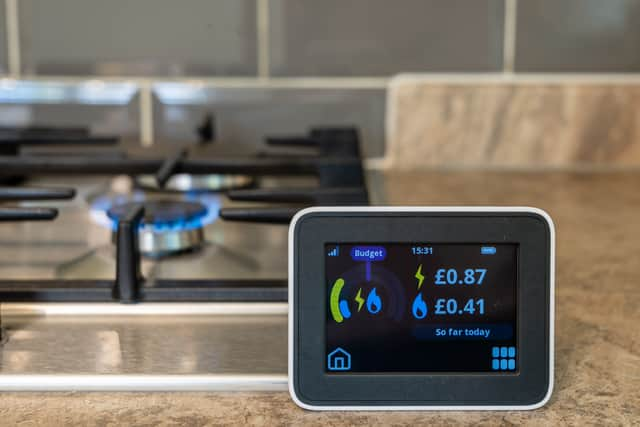Household energy bills to fall by more than £400 from July under new Ofgem price cap
and live on Freeview channel 276
The average household energy bill will be reduced by £426 from 1 July after Ofgem drops its price cap following a reduction in wholesale prices.
The regulator is cutting its price cap from £3,280 to £2,074, resulting in a reduction of more than £400 (17%) on bills per year. The fall comes as a welcome relief for consumers who have seen typical bills soar from £1,271 a year in October 2021 due to the global gas crisis.
Households have been partly shielded from the most recent price rises thanks to the government’s Energy Price Guarantee (EPG), which limited annual energy costs to £2,500 for the average household, subsiding Ofgem’s price cap.


The energy price cap sets a limit on the maximum amount suppliers can charge for each unit of gas and electricity, but the headline price cap figure is an average across households - not an absolute cap on bills. It means the amount households will save on bills is dependent on the actual energy usage at home, so those that use more will pay more.
While the average household is expected to save more than £400 on energy costs annually from Saturday (1 July), bills will still be almost double the amount they were before the energy crisis began.
Which? Energy editor Emily Seymour said: “While the new price cap will see typical bills drop by around £500, energy bills will still be almost double the amount they were before the energy crisis began – which will be unaffordable for some households.
“If you are concerned about struggling to pay higher bills, there is help available. Speak to your energy provider about a payment plan you can afford and check to see if you qualify for any government schemes.”
Ms Seymour added: “Fixed deals are starting to return to the market for existing customers of some suppliers. We wouldn’t recommend fixing anything higher than the unit rates in your current deal or for longer than a year. If you are offered a deal, then it’s really important to check the tariff’s exit fees in case you want to leave that deal early if the price cap comes down.”
Households are being urged to submit up-to-date meter readings before midnight on 30 June to ensure they are paying the lower prices as soon as the new cap comes into effect.
Accurate readings will stop energy suppliers from estimating the amount of usage and potentially apply the old higher prices to energy that is used after 30 June. Those who, for whatever reason, cannot submit readings ahead of the June deadline should do so as close to the date as possible, keeping a date-stamped photo as proof.
Household energy bills are expected to fall again later this year, falling below £2,000 a year from October, according to latest forecasts. Energy industry consultancy Cornwall Insight said it thinks the price cap on energy bills will fall to £1,978.33 from October - down from July’s £2,074 - but could rise again from January to £2,004.40, based on Ofgem’s current measures.
But the regulator is adjusting its definition of the average household’s consumption from October, down from the current 2,900 kWh a year for electricity to 2,700 kWh, and from 12,000 kWh for gas to 11,500 kWh, to reflect consumers using less energy to cut costs in the face of high prices.
Based on Ofgem’s adjusted definitions of average usage, Cornwall Insight has forecast that the regulator will announce price caps of £1,871 a year from October and £1,900 from January.
Comment Guidelines
National World encourages reader discussion on our stories. User feedback, insights and back-and-forth exchanges add a rich layer of context to reporting. Please review our Community Guidelines before commenting.
